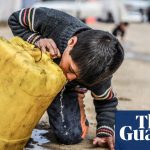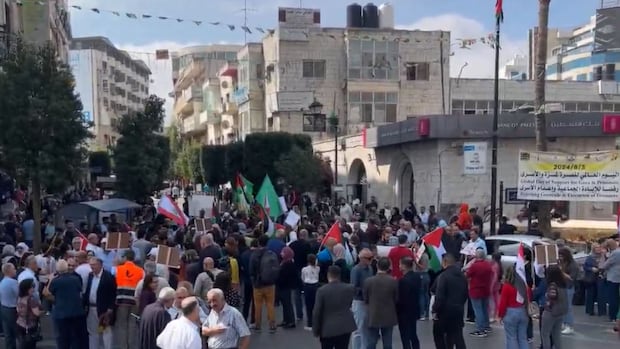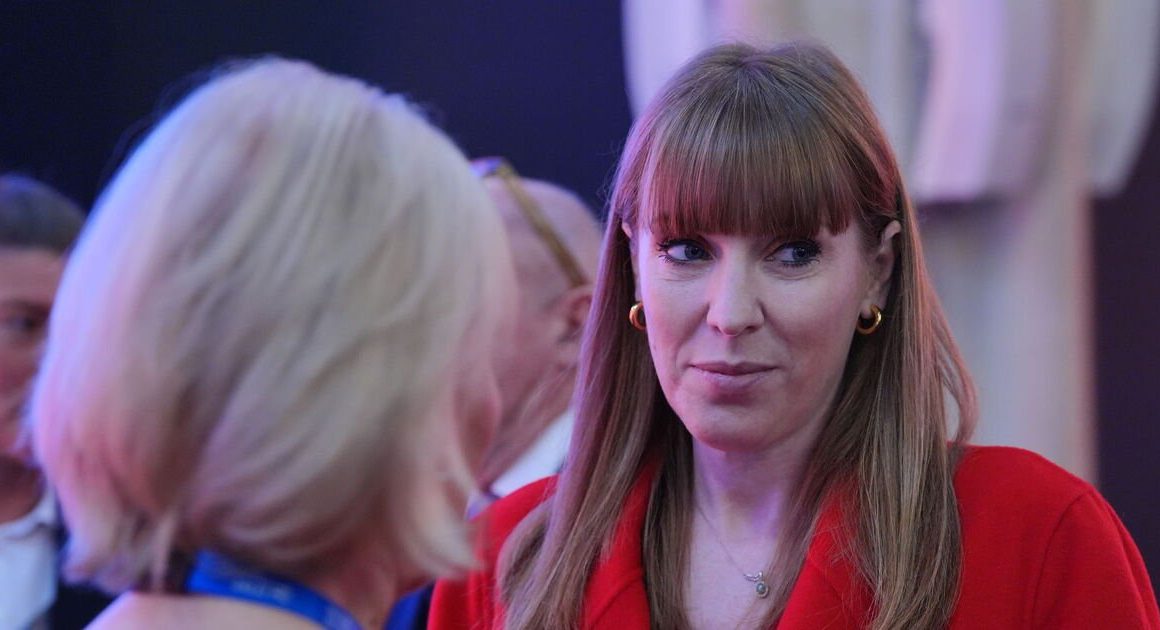The Israeli army issued an urgent warning Monday for people to stay off the beach or on boats on Lebanon’s coast, from the Awali river southward, until further notice, saying it would soon begin operations against Hezbollah from the sea as fighting between the two countries continued.
Israel later issued another evacuation warning for residents in specific buildings in Beirut’s southern suburbs, including the Burj al-Barajneh neighbourhood.
The Israel Defense Forces declared areas around a number of towns in northwest Israel as closed to the public on Monday as well, announcing the closed military zones along the border with Lebanon would now include the towns of Shlomi, Rosh Hanikra, Hanita, Arab al-Aramshe and Adamit.
Parts of northern Israel have been evacuated due to heavy rocket and missile fire from Iran-backed Hezbollah in Lebanon.
These latest developments come on the one-year anniversary of the Hamas-led Oct. 7 attacks on Israel that left some 1,200 people dead according to Israeli officials. Israel’s offensive in the Gaza Strip has since laid waste to the densely populated area, killing more than 41,900 according to Palestinian health authorities, and displacing most of the strip’s 2.3 million residents.
Israeli strike on Gaza hospital wounds 11
Earlier on Monday, the Israeli military said it struck at Hamas militants operating from a command centre embedded inside Al-Aqsa hospital. The strike wounded 11 people, Palestinian medics said.
Health officials held a news conference following the strike in in the central city of Deir Al-Balah, where a million displaced people are sheltering.
Dr. Mohammad Zaqout, director general of Gaza hospitals, said there are roughly 12,000 patients across hospitals in Gaza who are in dire need of treatment outside of the war-torn enclave.
In the Israeli-occupied West Bank, fear and uncertainty is spreading among Palestinian residents. CBC’s Yasmine Hassan spoke to protesters in Ramallah about life there — and why they’re marching in support of Gaza and Lebanon.
There are seven hospitals still operating in the north and south of Gaza, though they are severely lacking medical supplies, equipment and medication to treat those wounded, he added.
Zaqout said Indonesian hospital in north Gaza was also ordered to evacuate the premises Monday by Israeli forces. He said it is impossible for them to safely move hundreds of patients in ICUs who are getting treated.
“Thousands of patients have lost their lives during treatment because there is a lack of drugs and follow-up, and we expect to lose more and more … if there is no intervention,” Zaqout told CBC News freelance videographer Mohamed El Saife.
He added that doctors in Gaza continue to urge the opening of the Rafah border, which has been seized by the IDF, for seriously injured or ill patients who need treatment. Israeli tanks also advanced Monday into Jabalia, the largest of Gaza Strip’s eight historic urban refugee camps, after encircling it, residents said.
Soon after the rocket volley, the Israeli military expanded evacuation orders in Jabalia to cover areas in the northern towns of Beit Hanoun and Beit Lahiya.
Residents said Israeli forces pounded Jabalia from the air and the ground, and medics said several Palestinians had been killed, with rescuers unable to reach some of the victims.
The Israeli military said it killed dozens of militants and dismantled military infrastructure in Jabalia, saying the operation would continue to prevent Hamas from regrouping.
Missiles flying into Israel as strikes on Lebanon continue
Also on Monday, Israel within the space of an hour carried out air strikes on 120 targets in southern Lebanon, including against Radwan special forces units, Hezbollah’s missile force and its intelligence directorate.
Iran-backed Hezbollah, an ally in Lebanon of the Palestinian militant group Hamas in Gaza, said it targeted a military base south of Haifa and other nearby areas with missiles. Ten people were reported injured in the Haifa area and two others further south in central Israel.
Israel’s military said the air force was carrying out extensive bombings of Hezbollah targets in south Lebanon and two Israeli soldiers were killed, taking the Israeli military death toll inside Lebanon to 11.
WATCH | Israeli airstrike kills firefighters in Lebanon:
Lebanon’s health ministry reported dozens of deaths, including 10 firefighters killed in an airstrike on a municipal building in the border area, and 22 other people killed in air attacks on Sunday.
Yemen’s Houthis said on Monday that they fired two missiles at military targets in central Israel’s Jaffa area, making the announcement shortly after Israel said it intercepted a missile fired at central Israel from Yemen.
UN concerned about peacekeepers
Hezbollah has instructed fighters not to target Israeli forces near a UN peacekeeper base in the Lebanese border town of Maroun al-Ras, meanwhile, according to a statement by one of the group’s field commanders given to Lebanon’s Al Mayadeen broadcaster on Monday.
In the statement, the group accused Israel of using the peacekeepers as human shields.
The U.S. State Department said Monday it does not want United Nations peacekeepers in Lebanon to be put in danger in any way, including being attacked by Israel, adding that the mission plays an important role in establishing security in the country.
The UN Interim Force in Lebanon (UNIFIL) said in a statement on Sunday it was deeply concerned by what it called Israel’s “recent activities” adjacent to the mission’s position inside Lebanon.
The mission is mandated by the Security Council to help the Lebanese army keep the area free of weapons and armed personnel other than those of the Lebanese state. That has sparked friction with Iran-backed Hezbollah, which effectively controls southern Lebanon.
The Israeli military asked UN peacekeepers last week to prepare to relocate more than five kilometres from the border between Israel and Lebanon — known as the Blue Line — “as soon as possible, in order to maintain your safety,” according to an excerpt from the message, seen by Reuters.
On Thursday, the UN peacekeeping chief said the peacekeepers remain in place and provide the only communications link between the countries’ militaries.
Israel’s assault, which has killed over 1,000 people in the past two weeks, has triggered a mass flight from southern Lebanon where more than one million people have been displaced.








